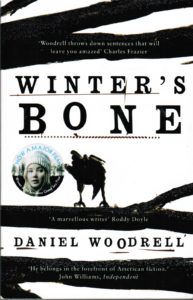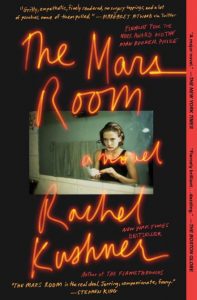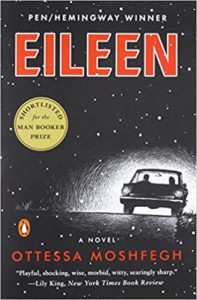The second in my series of the Alice Vega novels, The Janes, is out this month, and as I’ve continued to develop my protagonist, bounty-hunter-turned-PI Vega, the gals that have resonated with me haven’t been cops or detectives or PIs, but instead secretaries, schoolteachers and strippers.
I place no judgement on any of these roles. I separate them not to imply that the former group should be celebrated and the latter disparaged or vice versa, but just to illustrate how I think the character of Vega, and most authentic and fascinating female characters in my opinion, are surpassing lady badasses.
Vega is often referred to as a badass. I don’t have a problem with the title, per se, but if “badass” as a term once held a weight and mystique, I think that time may have passed. The Daily Beast ran a piece covering why back in 2015. I agree with almost all of those reasons to abandon the title but none more than its rampant overuse (google the “chocolate spice badass power cookie” for example).
Sure Vega can throw a punch, sure she fights crime, sure she knows some martial arts, sure she can operate a firearm. But should that be the badass checklist? Or can we expand it into another thing? For female characters, the qualities of being a badass may have become too rote. Simply being a woman who can hold her own in a fight isn’t enough anymore to surprise us as readers, or even make us cheer along for a bit of the old cathartic feminist violence. What else should it take? I will tell you what it takes for me.
If the following women were real and moving around in the world, including my Vega, they’d all be called difficult. Each one a nasty woman or like Tyler Durden once said affectionately of Marla Singer, “some twisted bitch:”

First there’s Ree Dolly from Daniel Woodrell’s Winter’s Bone—Okay, granted, this one’s not a shocker to anyone. Ree can chop wood, shoot a rifle, talk tough, and take a whopping of a beating, all while tracking her bail-jumping father through the freezing Ozarks. And she’s sixteen, and she’s raising her two brothers. But what I really love about Ree, what stays with me more than any of the tough stuff, or rather, what I believe is the actual tough stuff is how she turns her desperation into honesty. It’s not that she’s too brave to be scared; rather her fear is what motivates her, and she readily exposes it. Her Uncle Teardrop’s advice sums up how she already seems to be living her life: “You got to be ready to die every day—then you got a chance.”

Then we have Romy Hall from Rachel Kushner’s The Mars Room—Romy is a former stripper incarcerated for killing her stalker. By the sheer act of surviving, Romy proves to be shrewdly resourceful on the inside, even as she is driven crazy with desperation for news of her son. What I remember most about her is her cold reflection on the power dynamic between men and women, and how it changed her: “Something brewed in me over the years I worked at the Mars Room, sitting on laps, deep into this flawed exchange. This thing in me brewed and foamed. And when I directed it—a decision that was never made; instead, instincts took over—that was it.”

If I had to pick an end-all favorite out of this list, it would be Eileen Dunlop from by Ottessa Moshfegh’s Eileen—Eileen is one-of-a-goddamn kind. Seventy-four-year-old Eileen narrates the story, focusing on a brief period of time in her twenties. For nearly three hundred pages, I was riveted by this character’s exquisite self-criticism, as well as her complete disgust for almost every other human.
But I think what I love about her the most is her brutal honesty and unabashed unapologetic anger. She also, as an older woman looking back, has a firm grasp on people’s motivations, and adapts an attitude of staunch pragmatism. She derides the idea of therapy with regards to how she was sad at the loss of her dog but not of her mother: “I don’t trust those people who poke around sad people’s minds and tell them how interesting it all is up there. It’s not interesting. My mother was mean and that dog was nice. One doesn’t need a college degree.”
However, the line I remember daily when I’m feeling down and need a laugh: “There’s nothing I detest more than men with happy childhoods.” I see you, Eileen. There’s something hiding in there, and not like a soft emotional core of someone needing to be loved, per se—it’s the complete lack of cynicism. People mostly suck with some brief flashes of decency, so why don’t we all just call it like it is?

Last, the grande dame, Olive from Elizabeth Strout’s Olive Kitteridge—I would say instead of a rigid moral and ethical compass, Olive has more of a rattling weathervane, switching directions and swinging back and forth as she gets older and sees more of the picture. In this way she’s a little like the older Eileen—able to judge everyone up to and including herself, again with a total lack of cynicism, just brittle honesty, again the equal-opportunity judger.
It’s the flaws that strike me the most. After Olive steals one loafer from the closet of her catty daughter-in-law, she imagines explaining herself: “Listen…deep down there is a thing inside me, and sometimes it swells up like the head of a squid and shoots blackness through me.”
I have to tell you, I’m a little hesitant to read the sequel, Olive Again, because I know Olive’s engaged to Jack Kennison and I guess I’m worried she’ll be too happy and won’t have the thing inside her anymore, the thing that made her steal a loafer.
That “other thing” is far more important than the badass thing. It’s the complexity; it’s what drives my favorite female characters to do things that are bad, or good, or simply not subject to what men think they should or shouldn’t do. It’s the ready admonition of fear and darkness. Granted, “emotionally honest and self-aware” does not have the same ring as “badass.” I’ll work on it.
But in the meantime, think about this one: Am I the only one who would kill to read Fight Club from Marla Singer’s point of view?

















